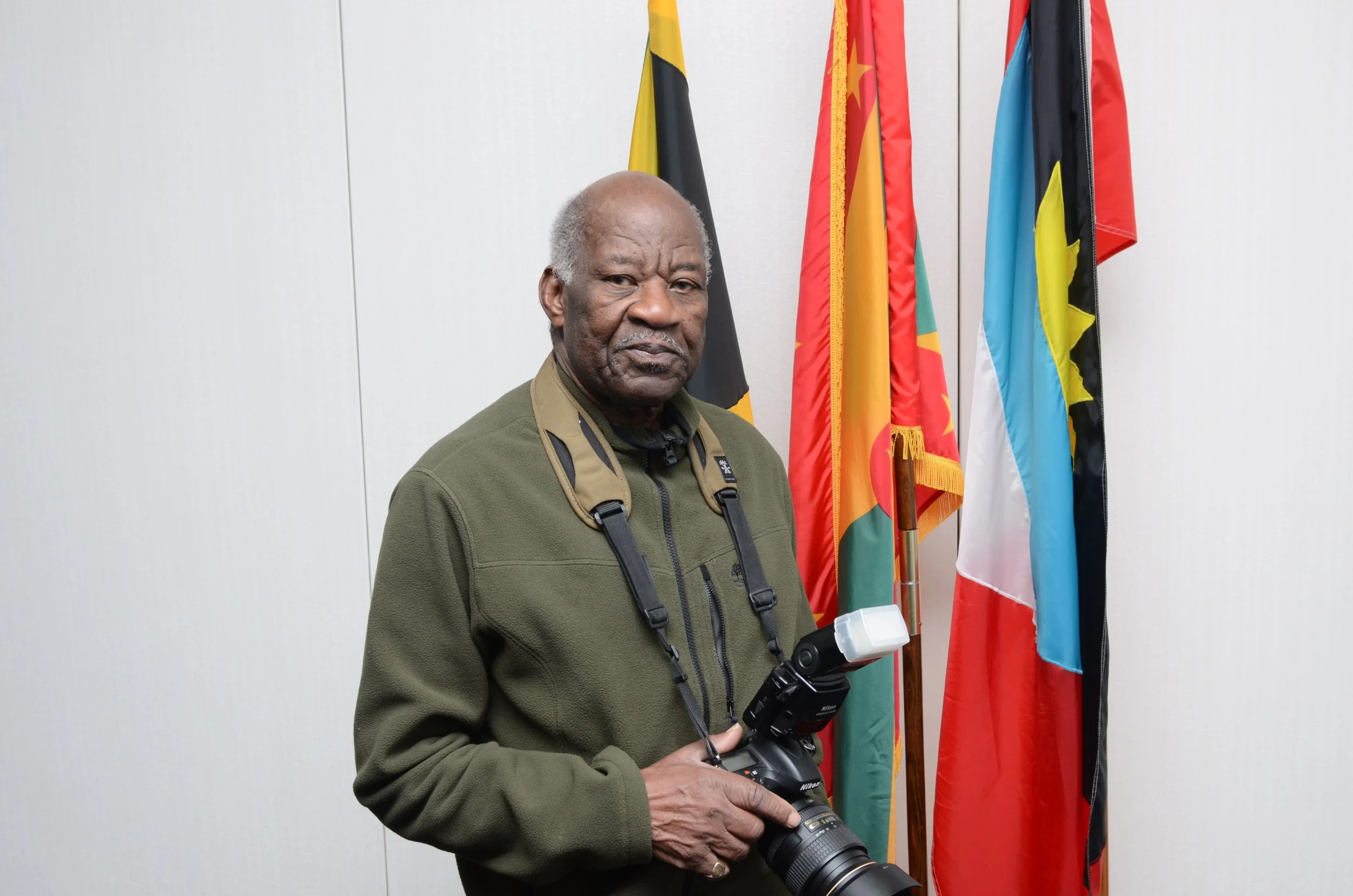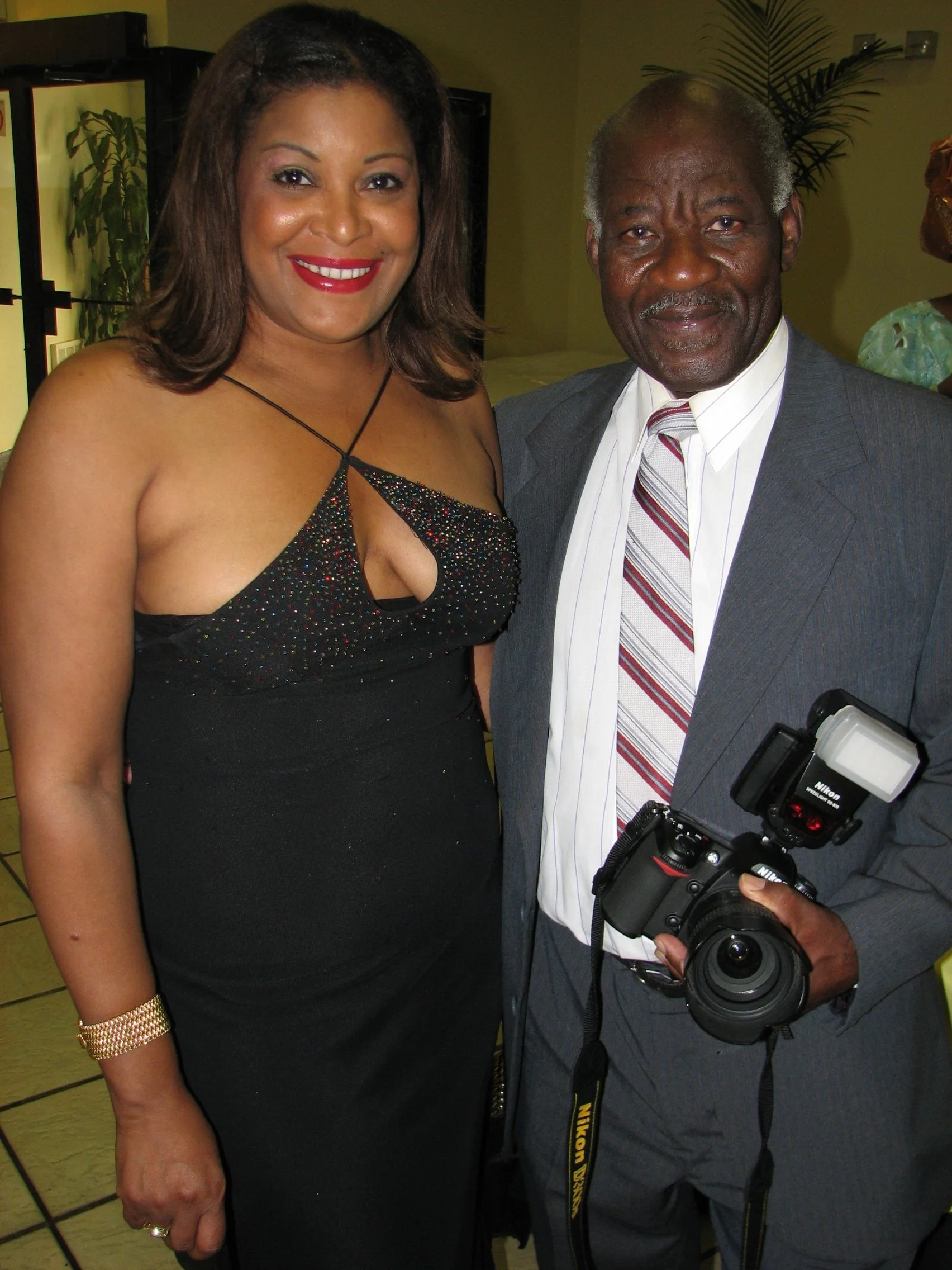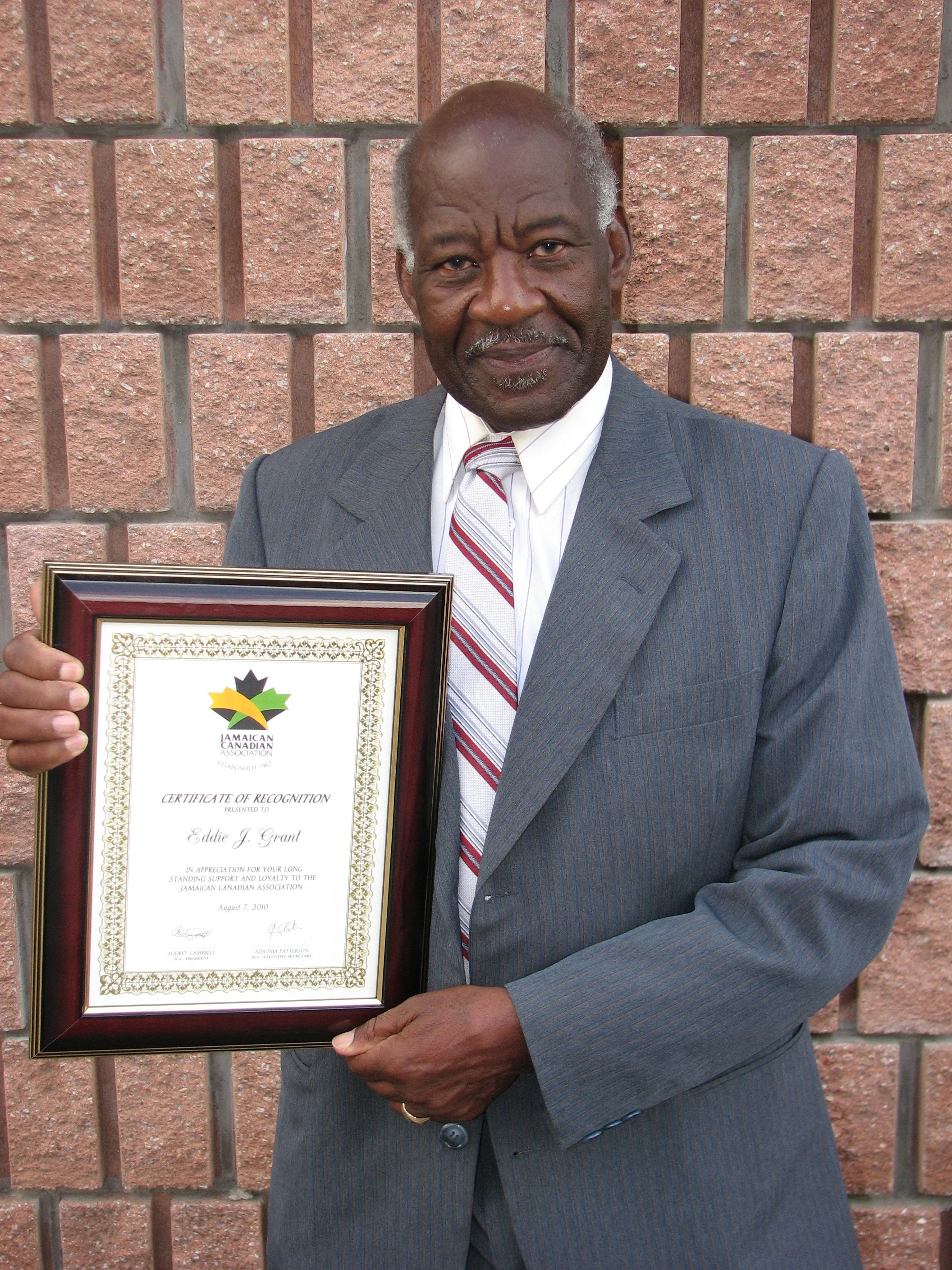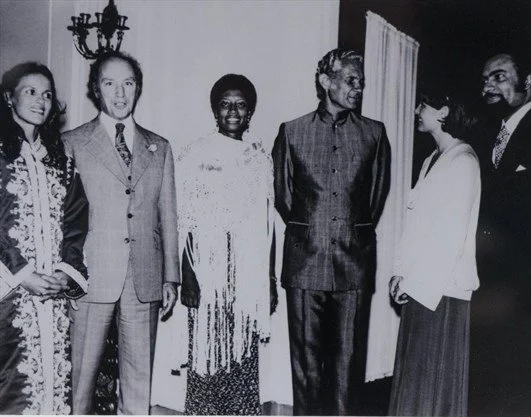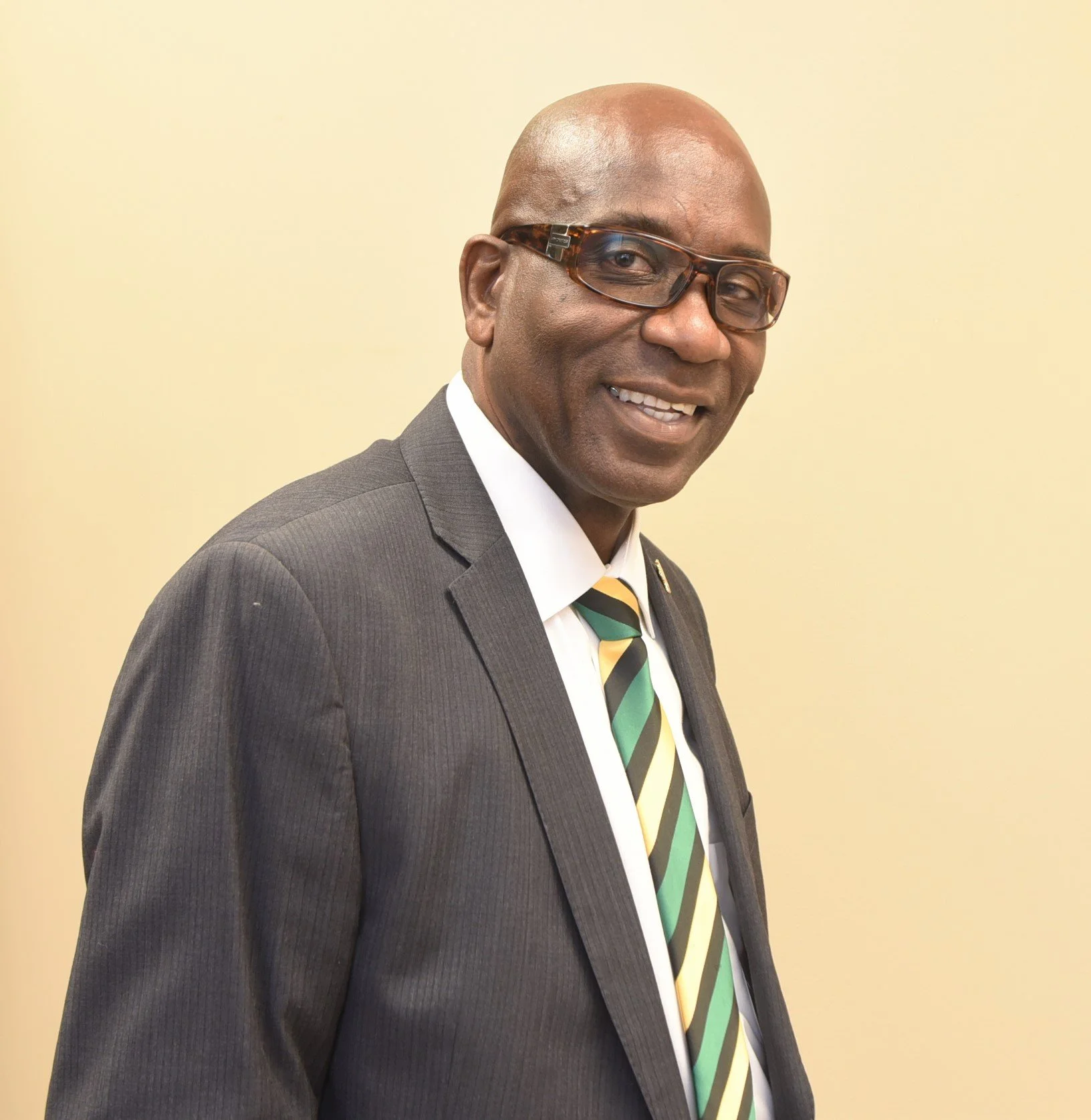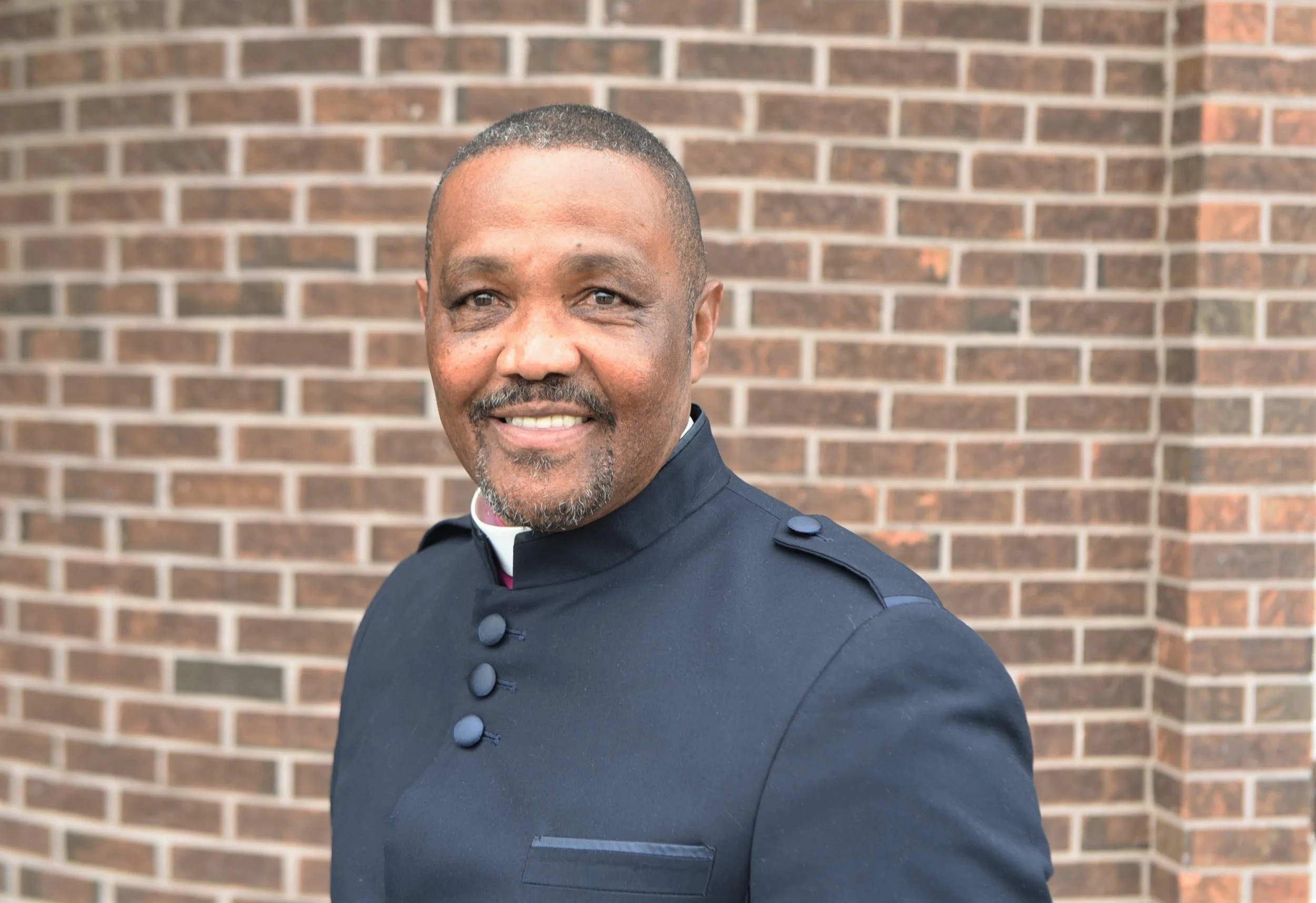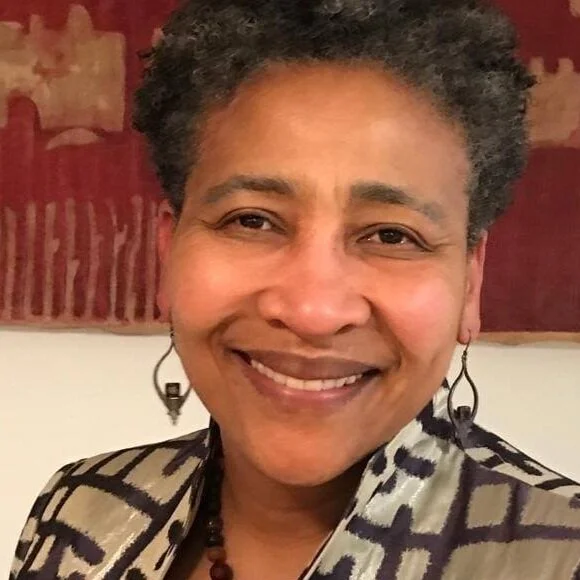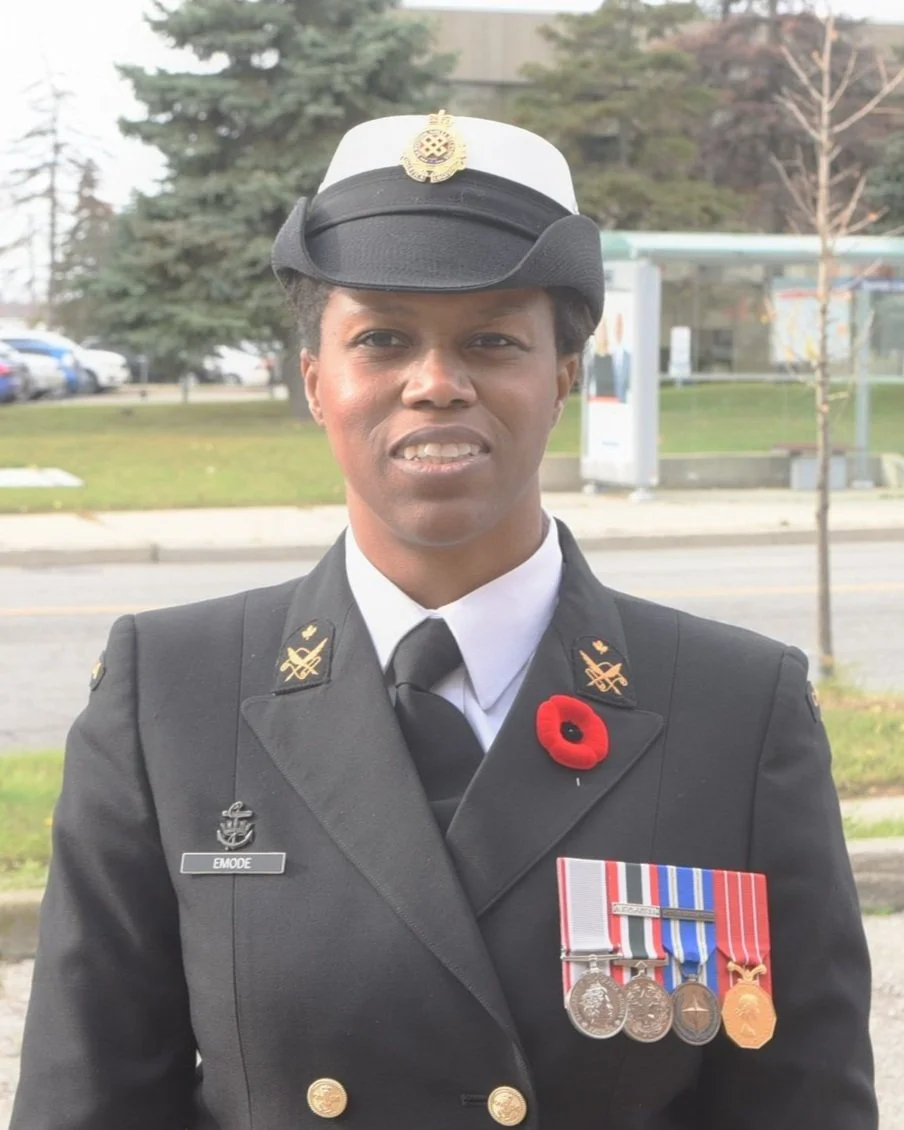Jamaican honours for 'Eddie' Grant, James Robinson and Derrick McIntosh on National Heroes Day
October 16, 2023
Shortly after her husband’s death in the mid-1990s, a woman requested photographer Egerton ‘Eddie’ Grant retouch the only photo she had of her spouse and remove the hat on his head.
‘No problem, but which side of the head was his hair parted?” Grant asked.
The woman said he would see when the hat is taken off.
Late Jamaica Consul General in Toronto Margarietta St. Juste told the story and presented Grant with a roll of film to dispel a myth that one of his cameras was always empty at a community event to celebrate him in October 1994.
Eddie Grant with late community activist Dudley Laws (Photo by Ron Fanfair)
Nearly three decades later, the Jamaican government recognized the veteran cameraman with the Badge of Honour for Long & Faithful Service in photojournalism and documenting the development of the Diaspora Community in Toronto.
Grant, who turned 90 last May, received the honour from Governor General Patrick Allen on National Heroes Day on October 16 at King’s House.
Jamaica’s Governor General Patrick Allen presents the Badge of Honour to Eddie Grant
“I have been doing this work for a very long time,” he said. “So to be recognized by the Government of Jamaica is very significant and something I really appreciate.”
An automotive mechanic in St. Thomas, Grant took up an uncle’s suggestion to travel to England in 1960.
After discovering that the college he wanted to pursue mechanical studies was far from his residence, he switched careers and studied photography at the Clapham & Balham Institute of Photography.
“I brought a small point and shoot camera with me to England, but then bought a better one and took photos of my friends while hanging out on the beach,” recounted Grant. “They were impressed with my photos and encouraged me to go to school which I did.”
Eddie Grant points to one of his favourite photos of sunset in Jamaica (Photo by Ron Fanfair)
His work also caught the attention of Clayton Goodwin who was the Jamaica Gleaner correspondent in England.
Asked to accompany Goodwin on assignments, Grant gleefully accepted and got the opportunity to meet several high-profile musicians and politicians, including late Jamaican Prime Minister Michael Manley.
During Manley’s visit in 1969, Grant volunteered to be the driver after organizers overlooked his travel itinerary.
“Eddie said to me, there is a fourth seat in the car and why don’t you come along,” Goodwin recalled in his book, ‘Sorry, But I Thought You Were Black: 50Years With the West Indian Press’. “It gave me the inside track on any other would-be reporter of the visit. It is what might be referred to these days as ‘embedding’.”
Eddie Grant served well in England before coming to Toronto to 51 years ago (Photo by Ron Fanfair)
He said it was sad day for him and the Black community press in London when Grant chose to locate to Toronto in 1972.
Eddie Grant with Sandra Witter (l) and Dessie Fanfair (Photo by Ron Fanfair)
“The number of events we attended would amaze present-day readers,” said Goodwin. “That was because Eddie had a car and knew his way around London with an expertise that would shame a cabbie and to us thinking alike…Like most people reaching the top of their profession from a position of disadvantage, Eddie did so through sheer hard work.
Eddie Grant takes a break from shooting photos to pose with author/motivational speaker Paulet Biedermann (Photo by Ron Fanfair)
“When I first knew him, he was a floor worker at one of the West End’s best known department stores and carried on his photography from his modest home in Brixton. His bathroom was a mesh of celluloid film hanging up to dry. He has come on a long way since then.”
Why leave England after 12 years?
“Most of my relatives were in North America, including Canada,” said Grant. “I was the only one there along with my uncle. I had been to Ontario for about three months in the 1960s and loved it. To me, life seemed much better here than in England.”
Eddie Grant with Rita Burke (l) and Mary Anne Chambers at the John Brooks Foundation awards in 2003 (Photo by Ron Fanfair)
As a Jamaica Gleaner photojournalist in Toronto for five decades, he has covered hundreds of community events and captured thousands of photos of well-known Jamaican entertainers, celebrities and politicians that have passed through the city.
Eddie Grant was presented with a Jamaican Canadian Association Certificate of Recognition in 2010 (Photo by Ron Fanfair)
They include the late Bob Marley during his first stage appearance in Toronto at Massey Hall in June 1975.
“He was very pleasant, we had a long chat backstage and he even offered me a ‘spliff’ he rolled which I declined,” said Grant. “I told him, ‘No brother, I don’t touch that stuff’. I will never forget that.”
Eddie Grant with husband and wife Philomen Campbell and Cherita Gervais-Campbell (Photo by Ron Fanfair)
He singled out a photo taken of late Canadian and Jamaican Prime Ministers Pierre Elliott Trudeau and Michael Manley and then Jamaican High Commissioner Dale Anderson and their wives as his favourite.
Eddie Grant’s favourite photo of Michael Manley, Pierre Elliott Trudeau and Dale Anderson with their wives (Photo by Eddie Grant)
“I was asked to go to Ottawa to take that photo that made the Sunday Jamaica Gleaner front page,” he pointed out. “I got a lot of positive reaction about that photo.”
To mark Jamaica’s 21 independence anniversary in 1983, Grant published ‘Jamaica 21’.
In November 2011, Eddie Grant received a Milestone Award at the inaugural Canadian African Caribbean Unsung Heroes event (Photo by Ron Fanfair)
He also shot photos for many corporations and tourist resorts, including the defunct SuperClubs and Sandals that he said stands out.
“Sandals provided me with opportunities to travel to several Caribbean islands, including Jamaica four times, Cuba thrice, the Bahamas, Turks & Caicos and St. Lucia,” Grant added.
Markham Mayor Frank Scarpitti presents a Black History Month Award to Eddie Grant (Photo by Ron Fanfair)
Longtime chauffeur Derrick McIntosh also received a Badge of Honour for Long & Faithful Service to the Consulate General of Jamaica in Toronto and the Jamaica Diaspora in the Greater Toronto Area.
In the last 25 years, the former Dinthill Technical High School Past Students Association President has served seven Consuls-General, including Lincoln Downer who nominated him before being assigned to Nigeria to serve as Jamaica’s High Commissioner.
“Derrick is reliable, confidential, trustworthy and has the respect of his peers and the wider Jamaican community in the Greater Toronto & Hamilton areas,” he noted. “He has a wealth of knowledge and has been a reference by visiting Prime Ministers and Ministers of Government. He has acted as a resource for Jamaica private sector entities based in Canada and is an ardent supporter of community activities.”
Derrick McIntosh (Photo by Ron Fanfair)
When Stewart Stephenson arrived in Toronto a few days before Christmas in December 1999 to serve as Jamaica’s top diplomat in the city, McIntosh was on leave.
“After Derrick returned about a month later, I could tell he possessed a wealth of valuable information that would serve me well,” he said. “I was very impressed by his grasp of the Jamaican community and his knowledge of the key players in the different sectors of the Jamaican Diaspora. He was able to facilitate my ability to engage with the community and to identify the needs and where we could get assistance. Because of him, it didn’t take me long to hit the ground running in Toronto. He has been a personal and loyal friend ever since.”
Leaving Jamaica in 1987 through the Seasonal Agricultural Worker Program was Bishop James Robinson’s ticket for a better opportunity.
Bishop James Robinson (Photo by Ron Fanfair)
After six months growing tobacco in Simcoe, he came to the Greater Toronto Area, enrolled in college to further his studies and spent 14 years with Rogers Communications as a technician and manager before establishing Faith Open Door Ministries in 2004.
He was the recipient of the Order of Distinction in the rank of Commander for his contribution to the Jamaican Diaspora in the areas of religion, civic advocacy and counselling.
Governor General Patrick Allen presents the Order of Distinction to Bishop James Robinson
“To be acknowledged at this level is significant,” said Robinson who ran for the Conservatives in York-South Weston in the 2015 federal elections. “As a Minister, I have served people and the community selflessly.”
Through hard work and perseverance, he overcame a speech impediment.
Black Action Defence Committee President Hewitt ‘Logie’ Loague (l) & Dudley Laws Day co-founder Ricardo ‘Brother Power’ Keane presented a Community Service Award to Bishop James Robinson in 2012 (Photo by Ron Fanfair)
In his words, ‘to say just good morning would come out of my mouth in the afternoon and good afternoon would be late at night’.





